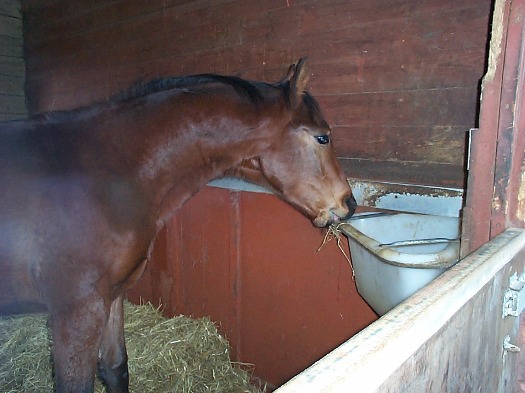New Horse Trust Equine PhD studentship
Professor Christine Nicol has been awarded a new Equine PhD studentship by the Horse Trust entitled "A formal analysis of behavioural structure as a tool to assess the impact of chronic equine disease".
Many chronic health conditions experienced by horses (such as lameness or inflamed skin) can be recognised by clinical signs, whilst others (such as gastric ulceration) are harder to detect but, in both cases, severity of clinical sign does not reliably map to equine subjective experience. The overall impact of such conditions on equine welfare and quality of life needs to be better understood. The purpose of the proposed work is to use an approach we have developed and tested with laboratory and farm animals, and to adapt this as a tool for horses.
Two populations of horses and ponies will initially be assessed (i) sweet itch and (ii) gastric ulcers, though the work has broader implications for all chronic conditions. The relation between clinical signs of disease severity and post-treatment recovery will be matched against a careful assessment of equine behaviour conducted in a more structured way than is usually performed. As well as taking the usual behavioural recordings and checking whether each horse is eating, standing and moving normally, the student will be trained to take recordings of more subtle states. The questions that arise are more subtle: Is the horse sleeping normally? Is the behaviour fragmented? Are some activities delayed to prioritise shorter-term needs? These subtle changes are known to be a sensitive way of monitoring changing welfare status in other species.
In horses, developing this methodology would permit better early detection of disease onset, better measurement of the impact of chronic conditions on horses and ponies (which could inform difficult end of life decisions), and more sensitive measurement of recovery and assessment of fitness to return to work. Advances in non-invasive automated behavioural monitors provide a potential platform for veterinarians and owners to make use of the findings from this project in routine assessments of equine welfare.

You may also be interested in:
-
New RVC research reveals correlation between livelihoods in the Bolivian Amazon and perceptions of jaguars
New research from the Royal Veterinary College (RVC), looking at how livelihoods influence views …

-(CA-ACEAA).jpg?v=638981101827551969)